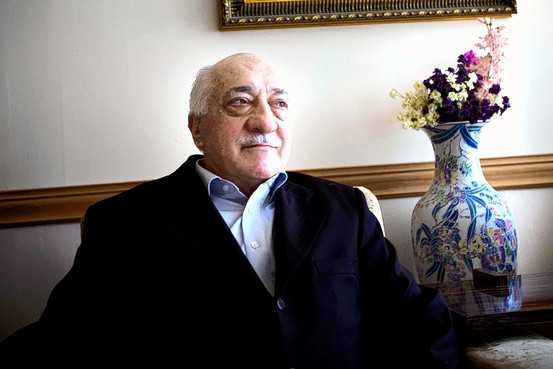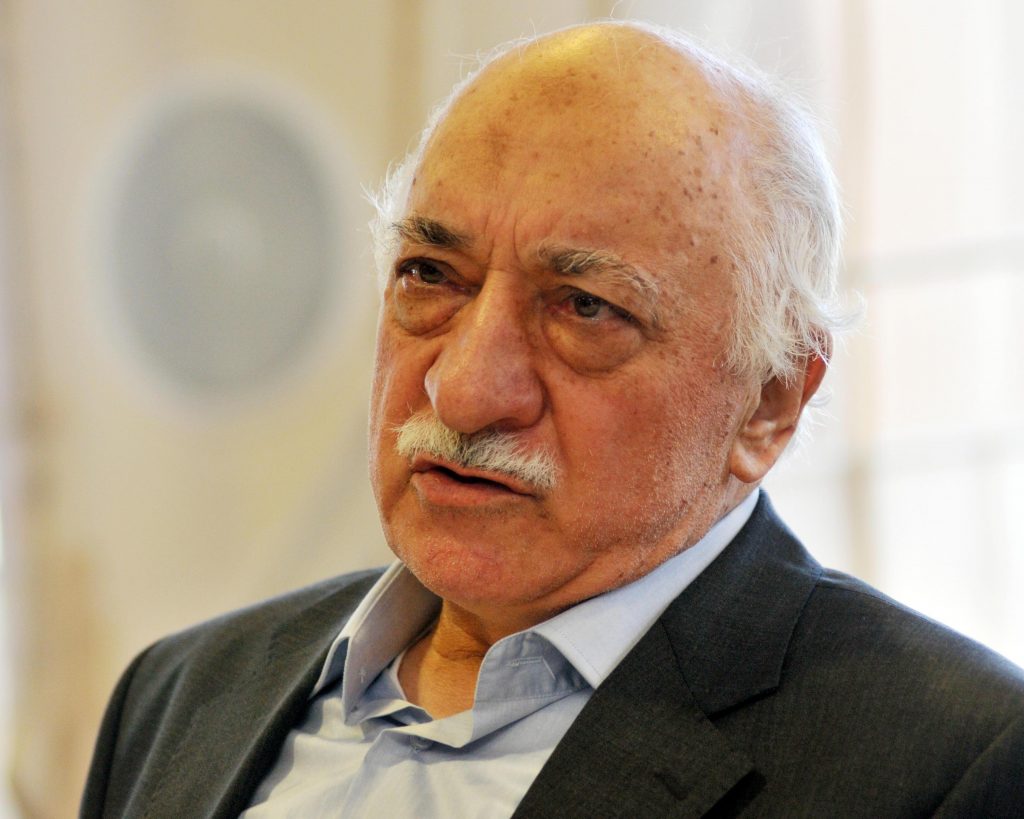SAYLORSBURG, Pa. — Fetullah Gülen has been called the world’s top public intellectual and the face of moderate Islam. He has held court with Pope John Paul II and received praise from former President Bill Clinton.
“You’re contributing to the promotion of the ideals of tolerance and interfaith dialogue inspired by Fetullah Gülen and his transnational social movement,” Clinton told audience members during a video address at the World Rumi Forum in 2010.
Yet others have branded Gülen a wolf in sheep’s clothing and a modern day Ayatollah Khomeini. CBN News recently took a closer look at the the life of the reclusive imam who directs a global Islamic movement from the Pennsylvania mountains.
Master Teacher or Deceiver?
Gülen’s story takes him from a small town in Turkey to founder of a multi-billion dollar Islamic movement bearing his name.
Despite a grade school-level education, the Turkish imam leads a worldwide following of some 5 million devotees. They refer to him as “Hoca Efendi,” or master teacher.
“What is the endgame of this movement, which constitutes a multi-billion dollar budget, which constitutes thousands of high schools all around the world, to universities, NGOs, markets, banks?” Turkish journalist Tulin Daloglu asked, voicing a question many have raised.
Gülen claims to represent a moderate brand of Islam compatible with the modern world. He emphasizes interfaith dialogue and the pursuit of science.
Yet one expert told CBN News there’s much more to the story.
“It’s not just a religious movement; it’s the Fetullah Gülen movement. They call themselves that. So it is, you can say, a cult. It is a highly personalized movement,” Ariel Cohen, a Middle East analyst with the Heritage Foundation, said. Cohen has been tracking the Gülen movement closely.
“This is clearly the world according to the Koran, the world according to Islam, the world according to Fetullah Gülen,” he told CBN News. “But what he’s talking about is not the caliphate, is not the sharia state–he calls it the New World Islamic Order.”
Far from Mainstream?
Cohen said some in the U.S. government and academia support reaching out to Gülen’s followers as a way to counter al Qaeda and other jihadist groups.
“The idea being, just like people who say that we should have a good relationship with the Muslim Brotherhood, that these are ‘mainstream Islamists,’” he explained.
But according to leading French-Turkish scholar Bayram Balci, Gülen’s ideas are anything but “mainstream” for a Western society.
Balci writes that the movement “serve(s) to accomplish three intellectual goals: the Islamization of the Turkish nationalist ideology; the Turkification of Islam; and the Islamization of modernity.”
“And therefore, (Gülen) wishes to revive the link between the state, religion, and society,” he writes.
Critics claim Gülen wants Islam to play a more active role in societies, breaking down barries between mosque and state while also promoting Turkish nationalism and identity.
Country Club for Islam
The Golden Generation Worship and Retreat Center, the worldwide headquarters of the Gülen movement, is located not in Ankara or Istanbul, but on 25 scenic acres of the Pocono Mountains in rural Pennsylvania.
CBN News toured the compound with a staffer but were not permitted to film or to meet Gülen. The 70-year-old leader is in poor health and rarely gives interviews.
Gülen came to America in 1998, reportedly to seek medical treatment. Since then, he’s directed his global empire from Pennsylvania. A federal judge granted him a green card in 2008.
Shortly after he left for America, a series of secretly recorded sermons featuring Gülen aired on Turkish television. In one of them, he told his followers:
“You must move in the arteries of the system without anyone noticing your existence until you reach all the power centers…You must wait for the time when you are complete and conditions are ripe, until we can shoulder the entire world and carry it…”
“You must wait until such time as you have gotten all the state power, until you have brought to your side all the power of the constitutional institutions in Turkey … Now, I have expressed my feelings and thoughts to you all in confidence. Know that when you leave here — as you discard your empty juice boxes, you must discard the thoughts and the feelings that I expressed here.”
After the tapes aired, Turkish authorities indicted Gülen on charges that he was plotting to overthrow the secular government of Turkey. The charges were eventually dropped.
Targeting America’s Youth
Meanwhile, the Gülen movement continues to expand its influence through the construction of schools worldwide, including in America.
Currently, there are about 125 Gülen schools spread out over 25 states. One school in Philadelphia receives some $3 million annually in taxpayer money.
“They work through the education system. Their main tool is educating kids,” Cohen told CBN News.
Gülen charter schools have nondescript names, like “Truebright Science Academy,” and focus heavily on math and science.
Many of the teachers hail from Turkey. Federal authorities are reportedly investigating whether some employees kick back a portion of their salaries to the Gülen movement.
Classified documents released by WikiLeaks show that U.S. officials have concerns about the Gülen schools.
“We have multiple reliable reports that the Gülenists use their school network (including dozens of schools in the U.S.) to cherry pick students they think are susceptible to being molded as proselytizers,” U.S. Embassy officials in Ankara said in a 2005 report.
“And we have steadily heard reports about how the schools indoctrinate boarding students,” they said.
Meanwhile, in its birthplace of Turkey, the movement continues to grow. Gülen followers are said to make up at least 70 percent of Turkey’s federal police force, ostensibly devoted to their master teacher half a world away in the Pocono Mountains.
*Originally broadcast on Jun 1, 2011.



 “Taraf” broke the Balyoz conspiracy theory on Jan. 22, 2010.
“Taraf” broke the Balyoz conspiracy theory on Jan. 22, 2010. Gen. Ibrahim Firtina, a former head of the air force, was questioned in court about a plot to overthrow the government.
Gen. Ibrahim Firtina, a former head of the air force, was questioned in court about a plot to overthrow the government. Prime Minister Recep Tayyip Erdoğan, President Abdullah Gul and Armed Forces Chief of Staff Gen. İlker Başbuğ met on February 25.
Prime Minister Recep Tayyip Erdoğan, President Abdullah Gul and Armed Forces Chief of Staff Gen. İlker Başbuğ met on February 25.
